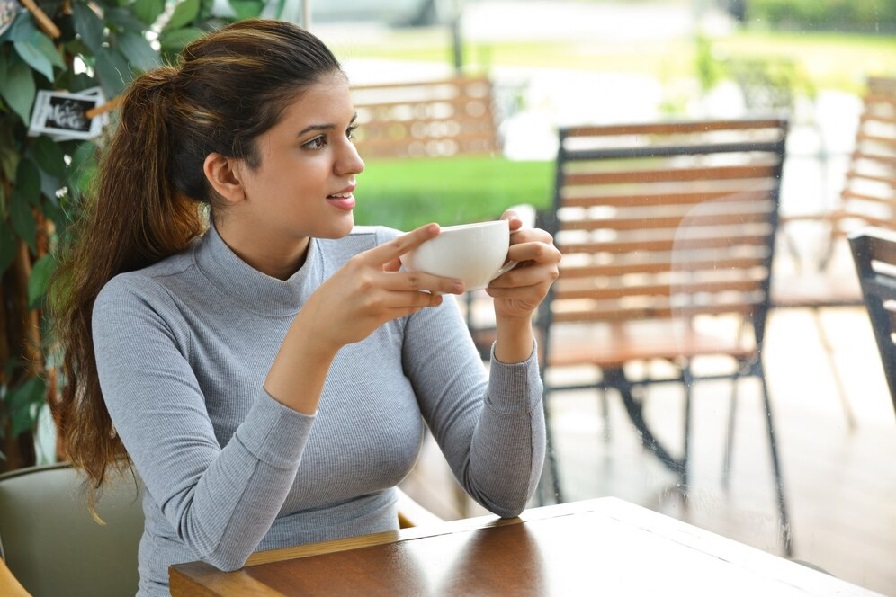
When it comes to tea, matcha has been stealing the spotlight for quite some time. But how much do you really know about it, especially regarding its caffeine content? In this article, we’ll dive into the details about caffeine in matcha, comparing it with other popular beverages, and exploring its effects on your body and mind Caffeine is in Matcha.
Introduction: Caffeine is in Matcha
Have you ever wondered why matcha has become a popular choice for tea lovers and health enthusiasts alike? One of the key reasons is its caffeine content, which offers a unique blend of energy and calmness. But exactly how much caffeine does matcha contain, and what makes it different from your regular cup of coffee or tea? Let’s embark on this journey to uncover the secrets behind caffeine in matcha.
What is Matcha?
Matcha is a type of green tea that has been a part of Japanese culture for centuries. Unlike regular green tea, where leaves are steeped and then discarded, matcha involves grinding green tea leaves into a fine powder Caffeine is in Matcha. This powder is then whisked with hot water, allowing you to consume the whole leaf and all its nutrients Caffeine is in Matcha.
How is Matcha Made?
The process of making matcha is both an art and a science. Here’s a simplified overview:
- Shading the Plants: About 20-30 days before harvest, tea plants are shaded to increase chlorophyll production, giving matcha its vibrant green color.
- Harvesting: Only the youngest, most tender leaves are picked.
- Steaming: Leaves are quickly steamed to prevent oxidation.
- Drying and Grinding: The leaves are dried and then ground into a fine powder using granite stone mills.
This meticulous process not only enhances the flavor but also boosts the nutritional profile of matcha, including its caffeine content.
Understanding Caffeine
Caffeine is a natural stimulant found in various plants, including coffee beans, tea leaves, and cacao pods. It works by blocking adenosine, a neurotransmitter that promotes sleep, thus increasing alertness and reducing the perception of fatigue.
Caffeine Content in Matcha
The caffeine content in matcha can vary based on several factors, such as the quality of the tea leaves and how much matcha powder is used. On average, a standard serving of matcha (about 1 teaspoon or 2 grams) contains approximately 70 milligrams of caffeine Caffeine is in Matcha.
To put this in perspective:
- A cup of brewed coffee has about 95 milligrams of caffeine.
- A cup of black tea contains around 47 milligrams.
- A cup of green tea has about 28 milligrams.
Thus, matcha falls somewhere between green tea and coffee in terms of caffeine content.
Matcha vs. Coffee: Caffeine Face-off
Many people turn to coffee for their caffeine fix, but how does matcha stack up against it?
- Energy Levels: While coffee gives a quick jolt of energy, it can also lead to a crash later. Matcha, thanks to its combination of caffeine and L-theanine, provides a more sustained energy boost.
- Focus and Calmness: Matcha promotes a state of relaxed alertness, helping you stay focused without the jitteriness that sometimes comes with coffee.
Matcha vs. Other Teas
When comparing matcha to other teas, the difference lies in how the tea is consumed. With matcha, you ingest the entire leaf, leading to higher caffeine and antioxidant intake.
- Black Tea: Lower in caffeine than matcha, black tea also lacks the calming effects of L-theanine Caffeine is in Matcha.
- Green Tea: While green tea leaves are also high in antioxidants, their caffeine content is significantly lower since you’re not consuming the whole leaf.
How Matcha Caffeine Affects Your Body
Caffeine in matcha affects your body differently than the caffeine in coffee or regular tea. Here’s how:
- Gradual Release: Matcha’s caffeine is absorbed more slowly, providing a steady energy release.
- Mental Clarity: The L-theanine in matcha promotes alpha brain wave activity, associated with a state of relaxed alertness.
- No Jitters: The combination of caffeine and L-theanine ensures that you stay energized without feeling anxious or jittery.
The L-Theanine Effect
L-theanine is an amino acid found in tea leaves that enhances the effects of caffeine while promoting relaxation. It increases the production of dopamine and serotonin, which improve mood and cognitive function. This unique synergy between caffeine and L-theanine in matcha is why many people find it a superior choice for sustained focus and calm energy Caffeine is in Matcha.
Health Benefits of Matcha
Matcha is not just about caffeine; it’s a powerhouse of nutrients:
- Antioxidants: Matcha is rich in catechins, particularly EGCG, which has strong antioxidant properties.
- Detoxification: The chlorophyll in matcha helps detoxify the body.
- Weight Loss: Matcha can boost metabolism and aid in fat burning.
- Heart Health: Regular consumption of matcha can help lower cholesterol and blood pressure Caffeine is in Matcha.
How to Prepare Matcha
Preparing matcha is an enjoyable ritual that can enhance your appreciation of this unique tea. Here’s a simple guide:
- Sift the Matcha: Use a fine mesh sifter to prevent clumps.
- Add Water: Pour a small amount of hot water (not boiling) over the sifted matcha.
- Whisk: Use a bamboo whisk (chasen) to create a frothy, green tea.
- Enjoy: Add more hot water or milk for a matcha latte, and savor.
Tips for Consuming Matcha
- Start Small: If you’re new to matcha, start with a small amount to see how your body reacts.
- Quality Matters: Opt for high-quality, ceremonial grade matcha for the best flavor and benefits.
- Experiment: Try matcha in different forms – lattes, smoothies, or even baked goods.
Potential Side Effects
While matcha has many benefits, it’s essential to consume it in moderation. Too much caffeine can lead to:
- Insomnia: Avoid consuming matcha late in the day Caffeine is in Matcha.
- Digestive Issues: Some people may experience stomach discomfort.
- Headaches: Overconsumption can lead to headaches in sensitive individuals Caffeine is in Matcha.
FAQs About Caffeine in Matcha
1. Is the caffeine in matcha stronger than coffee?
No, the caffeine content in matcha is generally lower than in Caffeine is in Matcha. However, the combination of caffeine and L-theanine in matcha provides a more sustained and balanced energy boost.
2. How does matcha caffeine compare to green tea?
Matcha contains more caffeine than regular green tea because you consume the whole leaf in powdered form, resulting in a higher concentration of nutrients and caffeine.
3. Can I drink matcha every day?
Yes, you can drink matcha daily, but it’s advisable to consume it in moderation, especially if you are sensitive to caffeine.
4. Does matcha have more caffeine than energy drinks?
Matcha has less caffeine than most energy drinks, but it provides a healthier and more sustained energy boost without the sugar crash.
5. Can matcha help with weight loss?
Yes, matcha can aid in weight loss by boosting metabolism and increasing fat burning during exercise Caffeine is in Matcha.
Conclusion
Understanding the caffeine in matcha and its effects can help you make an informed choice about incorporating this vibrant green tea into your daily routine. Whether you’re looking for a healthier alternative to coffee or seeking the unique combination of energy and calmness, matcha has something to offer. Enjoy it in moderation, and savor the myriad of benefits it brings to your body and mind.

